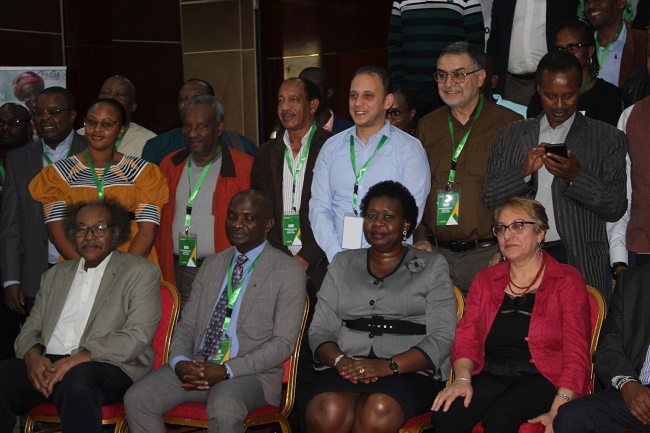The African Union (AU) has been asked to convene an African Peoples’ Summit on Climate Action at the instance of the African Group of Negotiators, the civil society organistations and other non-state actors to reassess the utility of the United Nations Framework Convention on Climate Change (UNFCCC) process to Africa after two decades.

Such a summit’s aims, according to African Civil Society that met in Addis Ababa, Ethiopia, at the instance of the Pan African Climate Justice Alliance (PACJA) from February 15 to 16, 2023, should include developing homegrown strategies for tackling the impacts of climate change, announcing actions to force big polluters to take responsibility for their emissions and the effect of their pollution on African communities, and adopting a regional masterplan for accelerating a just transition of the continent’s development, industrialisation and overall economic transformation.
Over 100 stakeholders representing civil society, indigenous peoples and local communities (IPLCs), faith movements, academia, youth and women’s movements participated in the PACJA multistakeholder reflections on COP27 outcomes and consultations on the stakes, challenges, and opportunities of the 28th Session of the Conference of the Parties (COP28) to the UNFCCC coming up in Dubai, the United Arab Emirates, later this year.
The consultations, which took place on the sidelines of the 36th Summit of Heads of States and Governments of the African Union, aimed to draw lessons from COP27, develop key messages in the evolving geopolitical context of global climate dialogues and devise strategies to secure COP28 outcomes that are ambitious and at par with Africa’s urgent needs and aspirations.
Similarly, the consultations built on earlier reflections and analyses that started in Kigali, Rwanda, and numerous other efforts scattered across the continent. These efforts, according to the promoters, have attempted to inspire the ambition and trust needed to address the deteriorating climate crisis that has threatened the livelihoods of millions of Africans in precariously unjust yet avoidable suffering.
While calling on the African Union to rise to the urgency of the climate crisis in Africa and put the plight of millions losing their livelihoods and lives above personal, national and international political and economic considerations, the campaigners likewise recommended the creation of a task force of African negotiators and advocates to develop African inputs into the newly created facility for the financing of loss and damage and provide technical support to AGN representatives in the fund establishment process.
The task force’s mandate, they suggested, should include assessing existing climate finance facilities and recommending strategies for an Africa-led reform initiative to make climate finance responsive to Africa’s unique circumstances.
The gathering further urged the AU, the United Nations and other bodies to join the African civil society in rejecting the appointment of Sultan al-Jaber, head of oil giant Abu Dhabi National Oil Company (ADNOC), as the President-designate of COP28.
They stated that cutting production and use of fossil fuels to address the climate crisis is squarely at variance with al-Jaber’s business interests, adding: “It is hard to see al-Jaber leading objective, science-backed negotiations in the interest of the most vulnerable.”
They also called on African Heads of State to scale up investment in the international dialogue on climate change.
“As an essential dimension of procedural justice, steps to strengthen the effectiveness of African negotiations should include: increasing the numeric, technical and resource capacities of national negotiation teams, insulating negotiators from political and economic influences, strengthening the role of young negotiators to ensure continuity, and increasing funding for climate research and analyses to support negotiation positions.”
Furthermore, they urged the AUC to strengthen the continent’s climate research capacities and capabilities to provide the evidence basis for position building and policy development at national, regional, and global scales.
Therefore, they recommended strengthening and capitalising on the Climate Research for Development (CR4D), bringing together national research and academic institutions, advocacy organisations, think tanks and other practitioners.
“Such a Council should, among others, aim to support climate research and technological innovation through an African Climate Research Fund,” the activists submitted.
